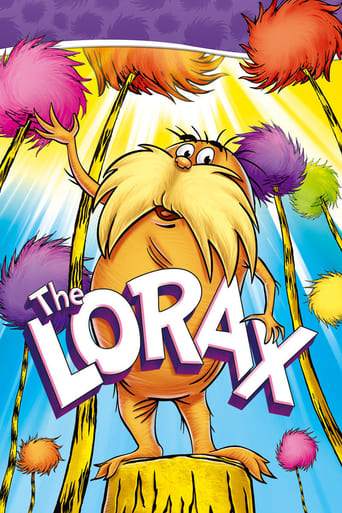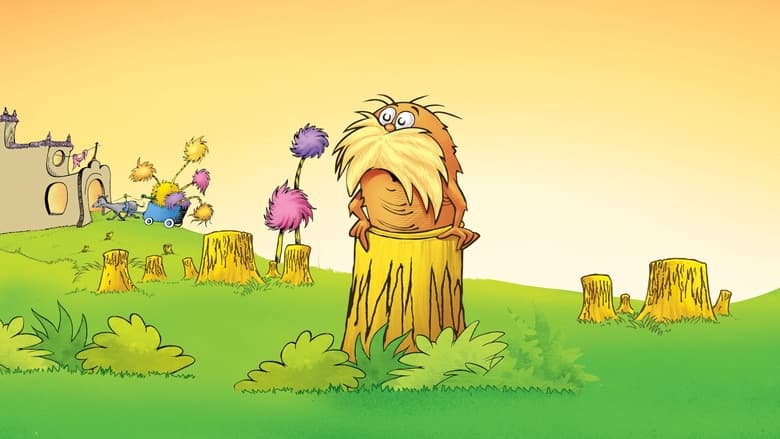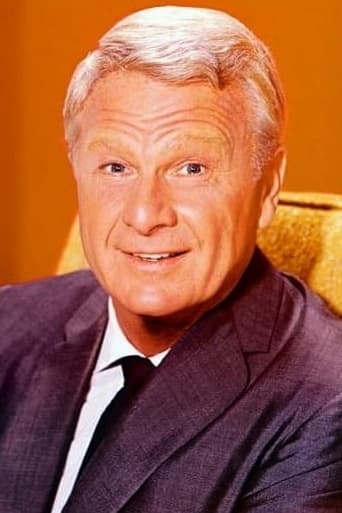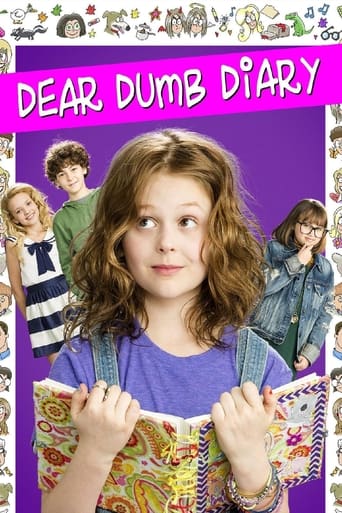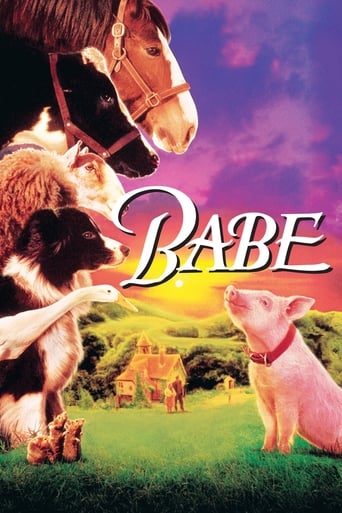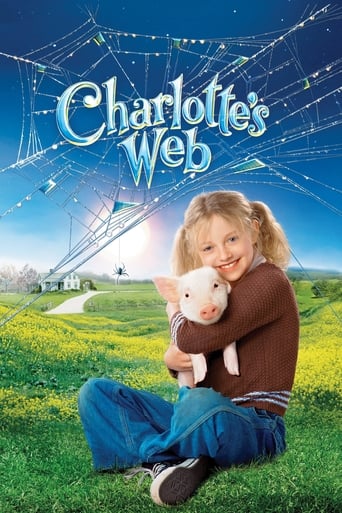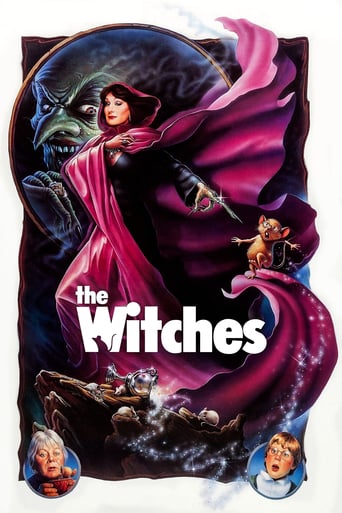The Lorax (1972)

The Once-ler, a ruined industrialist, tells the tale of his rise to wealth and subsequent fall, as he disregarded the warnings of a wise old forest creature called the Lorax about the environmental destruction caused by his greed.
Watch Trailer
Cast


Similar titles
Reviews
A lot of fun.
I like movies that are aware of what they are selling... without [any] greater aspirations than to make people laugh and that's it.
When a movie has you begging for it to end not even half way through it's pure crap. We've all seen this movie and this characters millions of times, nothing new in it. Don't waste your time.
While it is a pity that the story wasn't told with more visual finesse, this is trivial compared to our real-world problems. It takes a good movie to put that into perspective.
Let's compare this to the 2012 movie, shall we:Budget: 1972 version: Probably under $1,0002012 version: $70 millionRuntime: 1972 version: 25 mins2012 version: 1 hour 35 minsAnimation: 1972 Version: Hand-drawn2012 version: Computer animatedWell, strangely enough, with enough effort, a movie with 1/70,000th the budget of a kid's sellout movie, surpasses it in every way imaginable. The 1972 version really has a message. While the 2012 version seems to avoid the actual 'we need to help the environment' theme, the 1972 version shows that we are not doing enough to do so. It has a meaning, and therefore gives everyone a reason to watch it. Watching it did not make you feel like you were being subjected to an advertising sellout and made you really think about the environment as a whole. I think the 1972 version is a brilliant masterpiece, that did justice to Dr Seuss' work. The 2012 version however, stuck the Lorax on a Mazda advertisement. This just shows how much the 1972 version respected the source material compared to the 2012 version, and why it remains a masterpiece.
Since I was a small child I have always enjoyed this little political message about the fallacy of not having a suitable rights-enforcement body ensuring property rights of individuals in their jurisdictional area are upheld. The Lorax was clearly the sole caretaker/maintainer/improver of the land, fauna and flora and therefore the proper owner of the idyllic setting the Onceler came across. Rather than attempting to negotiate agreeable use of the land and resources in exchange for recompense, the Onceler just moved his gang in to systematically steal and destroy the Lorax's property (this is revealed in the first 5 minutes of the film). Clearly this was an anarchic state with no specific judiciary or security forces to enforce property rights. The Lorax, lacking independent power to protect his property had to resort to negotiation, which the Onceler - with greater numbers, finances, and physical resources, and in the absence of any property rights enforcement bodies - was able to safely ignore. My children love this story. They can appreciate that human rights include property rights, and they see that things would have been better for both the Lorax and the Onceler if a properly constructed rights-enforcing framework had been in place at the outset. Alternately the Lorax could merely have been in possession of a semi-automatic weapon.
Though it is most often associated with the playfulness and innocence of youth, even the whimsical, surreal land of Dr. Seuss isn't exempt from the destruction that ruthless, money-driven big business tycoons can create, as charmingly demonstrated in the 1972 animated film, The Lorax.Our titular protagonist is a stumpy, passionate, and unmistakably Seussical creature who "speaks for the trees". He takes his job very seriously and adamantly speaks out against their depletion when an avaricious, faceless character known as the Once-ler, our antagonist whose blatant disregard for the environment is topped only by his insatiable greed, comes into the picture. Immediately upon seeing the soft, colorful tops of the Truffula trees, he starts hacking away in an attempt to turn nature into profit, but at a heavy price.After seeing just one of the trees chopped down, the Lorax springs into defensive action, only to be brushed off nonchalantly. "Look, Lorax, calm down. There's no cause for alarm. I chopped just one tree, I'm doing no harm. This thing is most useful! This thing is a "thneed." A theed, a fine something-that-all-people-need!" is the Once-ler's lethargic reply. As soon as he begins selling the odd but versatile thneeds, consumers start buying, thus beginning a voracious cycle of supply and demand that Mother Nature had apparently never prepared for.Before long, the Once-ler's business grows to the point where he cannot fulfill the demand for thneeds, leading him to call family over for assistance. They dutifully make the move over, bringing pollution and garbage with them.Meanwhile, the fantastical creatures that'd been living there find they are being forced out by the gradual but steady destruction of their habitat. The Once-ler is not as clueless about the grave situation as he would like to pretend, but he argues that if he didn't do it, "someone else would." Before long, many confrontations between the Lorax and Once-ler later, no creatures are left and the pair are sorrowed by "the sickening smack of an axe on a tree," as they "saw the tree fall... the very last truffula tree of them all." And with that, a defeated Lorax pulls himself up from the "seat of his pants", leaving behind only a small pile of rocks surrounding the word "Unless".Defying typical Seussical conventions, the film does not end on a generically happy note, but on an ambiguous one instead. The contrite Once-ler presents a young boy, presumably symbolizing the new generation, with the very last Truffula seed and the parting sentiment, "Unless someone like you cares a whole awful lot, nothing's going to get better. It's not." His words are especially powerful when one considers that throughout the film, he knew at the back of his head that what he was doing was wrong, but figured he could still take the time to "think it over" while the money rolled in. He finally realizes that things just don't get done by having people idly "think it over", and that instead action needs to be taken. While there is little evidence that suggests the boy's endeavor could be anymore successful than the Lorax's, one is still left with the possibility of hope, that even in the most dire of situations, things could always begin to turn around at least a little.It is interesting to note the direct association the characters make with progression and the devitalization of nature. The Lorax cries out at one point, "They say I'm old-fashioned, and live in the past, but sometimes I think progress progresses too fast!" It's almost sad to note how even the Lorax instantly identifies the terror of what the Once-ler is creating as a step forward rather than a step back. The economy is often placed in higher regard than the environment, leaving even the most hard-headed environmentalist to reluctantly bow down to its magnitude. The power of a country is measured by its wealth, not how green it is. And of course, a wealthy, strong economy is nearly synonymous with big businesses, many of which unfortunately produce excessive amounts of waste and do little to give back to the environment they abuse.It's also worth mentioning how the Once-ler manages to convince the consumer of what they need, rather than what they want. In today's society, this trend continues. Through clever advertisements, the line between a person's wants and needs is often blurred. Many of the items that we once may have considered a luxury are now thought of as necessities, and even things that may be flashy and superfluous are easily thrown into the category of "needs", as today in society it is imperative to live in luxury and be up to date with the latest trends. Little Tabitha doesn't want the new Miley Cyrus CD, she needs it. After all, if she doesn't get it, how will she be able to keep up with her all of her friends? She won't; she'll be isolated and doomed to the life of a loner, or so she argues to her mother, who begrudgingly complies. And so another voracious cycle begins.I watched this movie as a project for a College Now class, and I'm glad I did. Great for giving the young ones a head start, and great for inspiring adults to start a new leaf.
A Dr Seuss relatively unknown gem. A narrator (never identified) tells a story of how a person discovered a crop that could be used for anything. Soon all the trees where this crop grew were cut down and factories were built along with houses and highways while all the while a creature in the forest gives warning, saying he speaks for the trees. Unfortunately the warning goes unheeded and the wildlife that lives there make a fateful decision. A cautionary tale that was ahead of its time but seems very on point today. It warns us to be careful not to become to obsessed with our needs for consumer items and not to be suckered in by commercialism at expense of nature and the wonderful world around us. A Dr Seuss that should be shown on televison much more often than it is - some Logging companies in the west wanted it banned because of the ecological message - but now it is available to all. A must see and one to watch and discuss with your children. On a scale of one to ten...8

